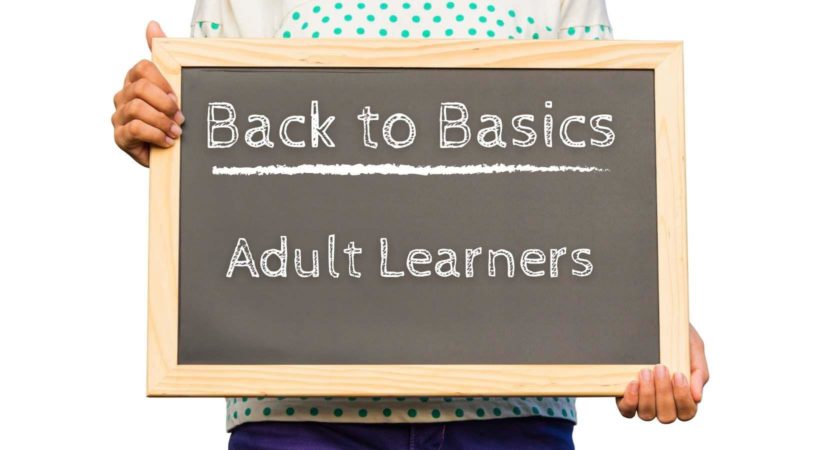
Back to Basics: Adult Learners
Welcome to our Back to Basics series! In this series we explore some of the foundational methods, practices and terminology for teaching reading and writing. This series is for those new to the field of literacy, beginning tutors or those who would just like a refresher. This week we discuss the uniqueness of adult learners.
Adults have unique characteristics and motivations as learners. As such, tutoring adults can look quite different than tutoring children. Decoda’s Adult Literacy Program: Virtual Tutor Training guide identifies eight characteristics of adult learners:
- Adults are experienced. Adults have many life experience to draw from. That experience can include school, work, family, hobbies, etc. Adults enjoy sharing their knowledge.
- Adults make choices. Most adults attend a tutoring session because they choose to. Understanding the reasons behind that choice will give a more complete picture of the learner.
- Adults have physical needs. Adults need regular breaks from sitting down. Adults may have other physical needs or challenges such as mobility, vision, hearing, etc.
- Adults may be reserved. Adult learners may be apprehensive of learning at this stage in their lives. They may have a prior negative education experience or come from another country or culture.
- Adults may expect to be told. It’s possible the learner has come to rely on an authority figure such as an employer.
- Adults want acknowledgement. Just like children, adults still need personal attention.
- Adults want to be treated like adults. Tutors should not talk at or down to their learner. They should avoid asking a lot of questions if the learner is unsure of the answers. Respect is key in the tutor-learner relationship.
- Adults like to have fun! Adult learners appreciate when tutors approach dry subjects with humour and lightness.
“When tutors recognize that we are all learners, then we become better prepared to work with other adult learners. Learning is a two-way street.” – Adult Literacy Program: Virtual Tutor Training
In addition to the above characteristics, adult learners need to see the relevancy in what they are learning. They must understand how the skills can be practically applied. Learning outcomes should therefore align with their personal goals. This and other aspects of adult learning are explained by the theory of andragogy outlined below.
Principles of Adult Learning
The popular theory of andragogy was developed by American adult educator Malcolm Knowles. While pedagogy is focused on helping children learn, andragogy is specific to adult learners. Watch the video below to learn the basic principles of andragogy and how it may help with teaching adults.
In addition to andragogy, there are several theories and principles of adult education. Tutors may wish to use a combination based on their learners’ specific needs. Having an understanding of the predominant theories and strategies will equip a tutor to teach a variety of adult learners. Check out the resources below to learn more about what makes teaching adults unique.
Resources
- Adult Literacy Program: Virtual Tutor Training
- Designing and delivering effective online instruction : how to engage adult learners
- Frontier College Tutor’s Guide: Working With Adults
- Planning instruction for adult learners
- Planning programs for adult learners : a practical guide
- Teaching adults : a literacy resource book
Related Blog Posts
The Benefits of Using Video in Literacy Tutoring
Learn about the benefits of using video in your literacy teaching.
Literacy Scaffolding
Learn about this popular and effective instructional support technique.
Health Literacy Matters – More Than Ever!
Health literacy helps us make informed choices for our health every day. This has become particularly noticeable during the COVID-19 pandemic, when it has been important for everyone to act …
